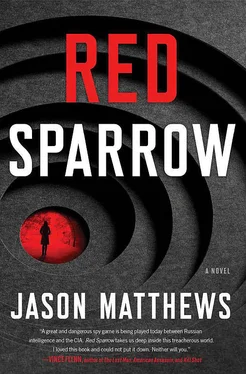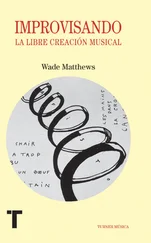The stock philosophical blandishments of recruitment made little impression on the young woman’s mind. She was not interested in the concept of Amity between Nations, nor in the desirability of a World Balance between modern Russia and the United States. Golov could see all this and did not waste time. He knew what she wanted—a career, influence, power.
Golov commissioned a series of thoughtful global backgrounders drafted by Service I, which he then shared with the senator “for discussion.” International relations, the global politics of oil and natural gas, developments in South Asia, Iran, and China. These specially prepared briefs on intelligence, economics, and military matters quickly made the senator an expert on her committee. The chairman, impressed by her fluency and scholarship, offered her the vice chair of SSCI. It was not lost on the senator that bigger things were possible.
As the relationship developed, Boucher never remotely struggled with the notion of espionage. She discussed SSCI hearings and issues during dinners with Golov, a matter of give-and-take, natural for a Washington politician. Golov elicited the information from her as if he were deveining a shrimp. The increasingly frequent payments from him “for expenses” Stephanie considered her due. Boucher had long since passed the point of no return, but it was not necessary to remind her of it. In her mind she was building her advantage, preparing herself for advancement, working toward her goal. The SVR had a member of Congress as an active source. SWAN.
=====
Anatoly Golov waited for Senator Boucher in the small garden dining room at the rear of the Tabard Inn on N Street. Tiny lights were threaded through the branches of potted trees in the narrow garden closed off by a tall brick wall. Traffic noise from nearby Scott Circle could have been the murmur of gentle nighttime surf. Golov had been Washington rezident for a year, was personally handling SWAN. He had vast prior experience in operations, and recognized that SWAN could conceivably be the most valuable American source Russia had ever run.
Even so, he disliked the agent and he disliked the case. In truth, SWAN scared him a little. He thought back to the early days when agents were recruited because of their ideology, their belief in world communism, their commitment to the dream of a perfect socialist state. Now it’s all sharada, a charade, thought Golov. SWAN was a greedy, uncontrolled sociopath.
He shot the cuffs of his shirt. Golov was imperially tall, his thinning gray hair combed straight back. A long straight nose and delicate jaw hinted at Romanov, but that didn’t matter anymore, not even in the SVR. Golov was dressed in a sublime two-button dark Brioni suit, with a razor-starched white shirt and silk navy tie from Marinella with tiny scarlet dots. He wore black Tod Gommino loafers over charcoal-gray socks. Perhaps he was an elegant European count, perhaps on vacation in the United States. The only jarring note was the plain gold signet ring worn on his little finger. On Golov it was mysterious, hinted at a hidden history.
Golov was finishing his dinner of an egg-lemon lamb fricassee, red kale sautéed in balsamic vinegar, and pommes de terre aligot as good as he remembered having in southern France. Though he normally did not drink when operational, he needed to fortify—or did he mean numb—himself when meeting the senator. He finished his second glass of Chardonnay and ordered a doppio espresso.
While the table was cleared, Golov reminded himself once again that SWAN was too important an asset to waste time and technique on trying to mollify, or discipline, or control. What Stephanie wanted, the SVR would give her. She had been passing minutes of SSCI closed sessions, hundreds of digital pages of testimony by defense and intelligence officials on weapons systems, intelligence operations, and US policy the likes of which the Center had never seen, never knew existed. In return the SVR had settled on salary payments in amounts unheard of in the annals of the chronically parsimonious Russian intelligence service.
Her value elevated her above the status of agent—she was a supermole, a potential agent of influence, a Manchurian candidate. Golov had begun directing, assisting, coaching her, preparing her further for important career advancement. It was not new. Over the years the Russians had done it before, obliquely, for other members of the US Congress. Unfortunately, most of those debauched legislators eventually drove into lampposts, or caught air before splashing into the Reflecting Pool, or skidded off bridges into tidal estuaries. Compared with those cirrhotic bumblers, SWAN had no such vulnerabilities. Better yet, none of them had had the potential of SWAN. The Center envisioned Boucher as a cabinet member, as Director of the CIA, perhaps even as vice president.
Her production was astounding, and the best was yet to come. SWAN was on the threshold of tapping into the most sensitive, current SAP in the Pentagon, the Special Access Program devoted to the development of an advanced Global Orbiting Vehicle (GLOV).
Initial intelligence already provided by SWAN astounded the Russians. GLOV would be a hybrid platform capable of collecting SIGINT and ELINT while providing GPS support. It could protect itself in orbit from killer satellites. More alarming for Moscow was GLOV’s anticipated ability to launch weapons from space against targets on earth. Directly. No warplanes, no refueling, no radar, no stealth technology, no antiaircraft missiles, no lost pilots, no warning. Pinpoint strikes on the surface of the planet from three hundred miles in space. US Air Force project briefers had called it the Finger of God.
The billion-dollar SAP was contracted exclusively to, and managed in a strict compartment by, Pathfinder Satellite Corporation of Los Angeles, located in the high-tech corridor along Airport Road and the LAAFB in El Segundo. This coincidentally also happened to be Senator Boucher’s former congressional district. Yes, indeed, thought Golov, the best is yet to come.
=====
Senator Boucher walked briskly through the small English country-house lobby of the Tabard Inn, squeezed past people in the narrow picture-lined corridor connecting sitting rooms and lounge, before coming out to the garden. She saw Golov at a table in the rear and strode over to him. Golov stood up, offered his hand, and bent in the European fashion to bring the lips to within inches of the hand. Golov did not actually touch the senator’s hand with his lips. He recalled early assessment reports about her social habits and what she liked to do with those hands.
“Stephanie, good evening,” said Golov, choosing his words. He used her first name to create familiarity and to avoid using her title, striking a chord between courtesy and intimacy. You never knew what kind of mood she would be in. Golov waited for her reply as she sat down.
“Hi, Anatoly,” said Boucher. She put her elbows on the table. “I’m sorry to get right to business, but did you receive an answer from your people?” The senator fished a cigarette out of her purse. Golov leaned forward to light it with a pencil-thin gold Bugatti lighter.
“I passed along your request, Stephanie,” said Golov, “along with my recommendation that they should agree without hesitation. I expect a reply within the next few days.” He sat with his hands resting easily on the tablecloth. His coffee arrived, and Stephanie ordered a whiskey and soda.
“I feel so good that you recommended they pay, Anatoly,” said Boucher in her committee voice. “I don’t know what I’d do without your support.”
What an insufferable woman this is, thought Golov. But he knew the Center would pay. They would pay five times her asking price for the information. The first discs she already had provided from Pathfinder Satellite SSCI briefings had amazed Russian researchers. Additional discs, manuals, and software from future Pathfinder and DoD briefings would be priceless. “Stephanie, you know you have my support always. Don’t worry, the Center will agree, and gladly.” Golov resisted the impulse to pat Boucher’s hand across the table.
Читать дальше












